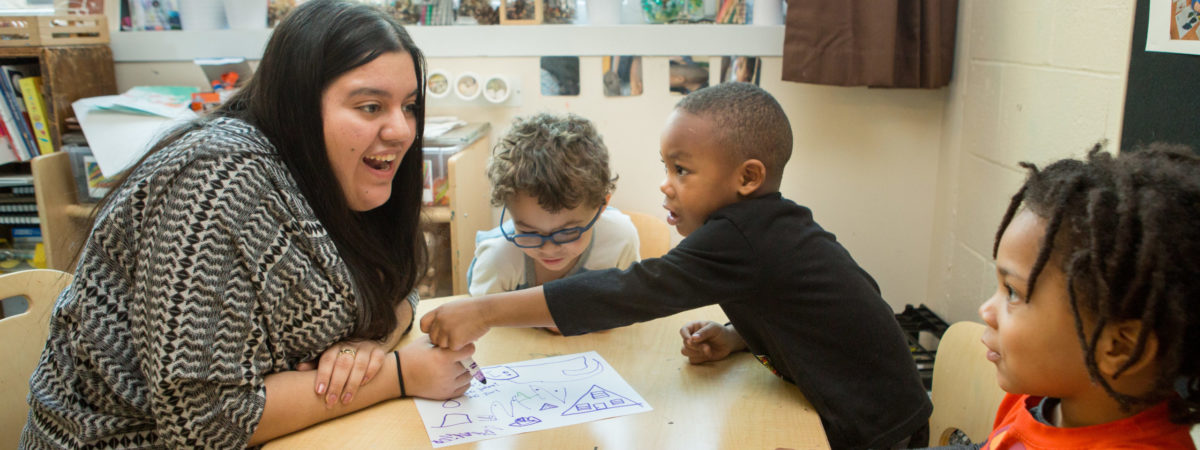
In a recent webinar hosted by Digital Promise titled “Learning, Relationships, and Power: Attending to Each Moment of Teaching as Pedagogical Possibility Toward Equity,” Dr. Thomas Philip, researcher and professor at University of California, Berkeley, offered a new lens that builds upon current approaches to culturally responsive teaching and offers promise for systems transformation. Dr. Philip shared his research on power dynamics in classrooms, schools, and society, and how teachers can navigate and ultimately transform classrooms and institutions toward more equitable, just, and democratic practices and outcomes.
The audience of undergraduate students, school leaders, professional development specialists, instructional coaches, and non-profit leaders engaged in roundtable discussions where they considered the possibilities for community science learning in their contexts. The presentation is available to view now.
Dr. Philip began by acknowledging two important approaches to addressing inequities in classrooms. The first approach from the field was the acknowledgement of the “achievement gap” and responding strategies and approaches. This approach has been problematized as deficit-based. The other prevalent approach focused on content, asserting that inequitable outcomes exist because of the lack of culturally relevant content for students. Dr. Philip said, “These are two very important approaches, yet there’s a possibility that things might get glossed over… For example, even if we change the content of a classroom…if the ways in which we teach don’t fundamentally shift, the ways in which students’ knowledge and the assets that they bring to a classroom are acknowledged and built on, these changes will not translate into the fundamental transformations that we desire.”
Dr. Philip views teaching and learning as a collective progression of ethical and pedagogical moments, and focuses on the choices that educators can make in those moments. The choices can affect relationships, learning, and the possibilities for dialogue. While there will never be perfect choices, we can make better choices by grounding our ethical decisions in the questions: Who benefits? and Who is marginalized? They are questions that we must constantly ask because the answer changes across the multitude of micro-interactions that occur every day, from choices about seating arrangements and choices about grouping, to the language teachers use with students and more.
In breakout rooms, participants reflected on what they learned from Dr. Philip. One participant shared, “All the micro moments that we can dismiss because there are so many overwhelming things that happen in the classroom—these all build to create the society that we live in. We need to try to stay present and mindful.” Other participants discussed the challenges of approaching each moment as political and ethical. In one breakout room, participants commented, “There’s a difference between what is stated in our values versus what happens in practice,” and “There is a lot of fear surrounding taking the changes to observe these political moments.” Another participant emphasized the long-term effects of equity-centered practices: “We need to be able to teach healthy discourse to students so they can become adults who can have healthy conversations.”
It is essential that school leaders demonstrate the importance of these equity-centered mindsets and behaviors for their staff. School leaders can start by creating space in professional learning communities for teachers to look at their practice through the lens of who benefits and who is marginalized. School leaders can also use this lens to reflect on their own interactions with students and staff, asking themselves who in their staff is marginalized and who benefits from leaderships’ actions and decisions. Then, they can model a growth mindset by sharing those reflections with staff. Dr. Philip said, “We have a moral and ethical responsibility to ask this question: Who is benefiting, and who is marginalized?”
This webinar was the final in a series of webinars that extended Digital Promise’s work on principal leadership in a virtual environment (2021), sponsored by the Wallace Foundation.
Want to know more about supporting equitable learning experiences? Below are resources recommended by Dr. Thomas Philip, as well as resources from Digital Promise:
Follow @DigitalPromise on Twitter to stay updated on upcoming research-to-practice webinars and events.